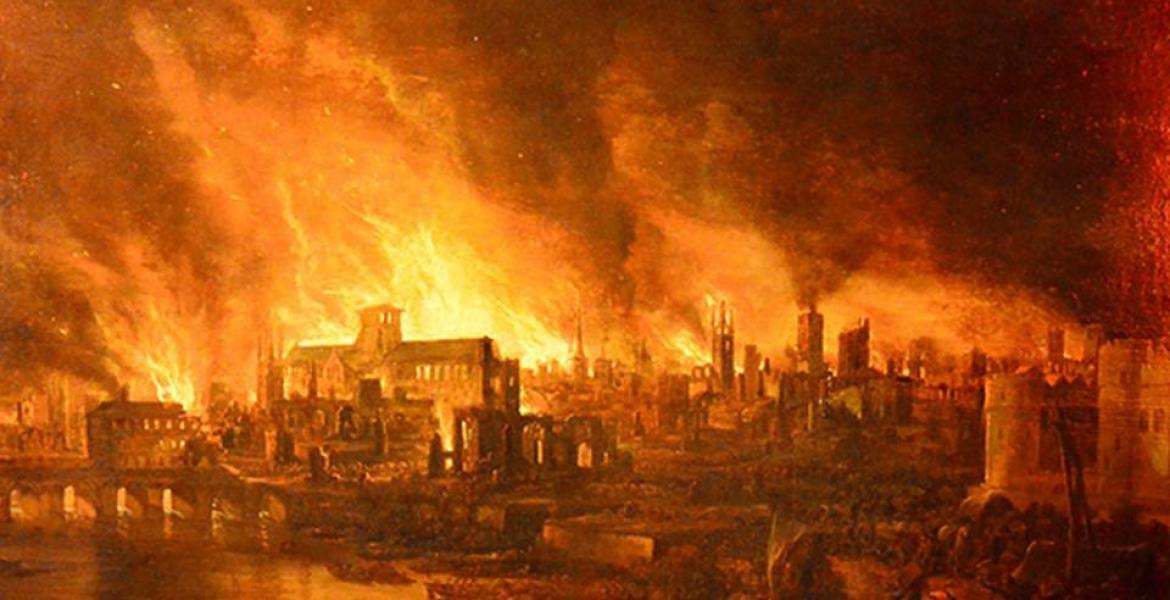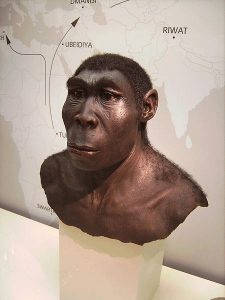
This post – Music History Monday – would not be possible without the internet. In a matter of seconds, I – or any one of us – can access a seemingly innumerable number of sites that will afford us all sorts of date-related info: what happened and to whom on any particular date. I rely on a number of such music-related sites for gathering possible subject matter for Music History Monday, and nine-out-of-ten times (nineteen-out-of-twenty? whatever, most of the time) I find a date-related topic about which I can comfortably write between 1500 and 2000 words.
I’ve been writing this post for a bit over three years now (for those inclined towards masochism, all of these posts – going back to August 2016 – can be found here). Early on, on the rare occasion that I could not find something to write about, I “borrowed” an event from the day before or the day after. Sometime during the first year I decided that that was cheating and that I had to be cleverer than just borrowing stuff. So I began to use those occasional “dead” dates to editorialize: to bloviate on topics of personal musical interest. And while I deeply appreciate your forbearance – my dear, wonderful readers – I am so accustomed to hearing myself rant and rave and opine that at this point doing so bores me to the point of tears.
So over the course of the last year or so, I’ve attempted to gut my way through the occasional dry date – of which today is obviously one (I wouldn’t be wasting all this space ruminating on the problem if it weren’t) – by either writing about relatively obscure births and deaths (though such events were by no means obscure to those people whose births and deaths they represent) or figuring a way to shoe horn some musical commentary into a non-musical event.
So that you might understand what I mean by “obscure”, here are the more outstanding musical events that occurred on this day. September 2 saw the births of the composers Georg Böhm (1661); Johann Trier (1716); Pehr Frigel (1750); Felix Wolfes (1892); Rene Amengual (1911); Dai-Keong Lee (1915); Hans Joachim Koellreutter (1915); Tzvi Avni (1927); Miloslav Istvan (1928); Andrey Petrov (1930) (you are getting sleepy!); David Leonard Blake (1939) and John Zorn (1953). With the exception of the first and last of these folks – Georg Böhm and John Zorn – the music of these lovely people has, sadly, been flushed down the toilet of time (as I expect mine will be as well).

(For our information, Keanu Reeves was born in Beirut, Lebanon on this date in 1964, but I am hard put to come up with any pertinent musical connection to The One.)
The deaths on this date – with the exception of Rudolf Bing, who died in 1997 after a storied career as the manager of the Metropolitan Opera – are equally meagre.
However, when it comes to major world events, September 2nd is indeed a big day. I would offer up a few for purely pedagogic purposes:
On September 2, 44 BCE, the great Roman statesman and orator Marcus Tulius Cicero launched the first of would be 14 oratorical attacks on the lumpish Roman politician and general Marc Antony. (I will happily admit to having become a Cicero fan-boy after reading Robert Harris’ superb historical trilogy, set in the dying days of the Roman Republic, Imperium, Conspirata, and Dictator. I would be so bold as to suggest that by recommending these novels this post has now offered something of value!)
Other September 2 events.
On September 2, 31 BCE Octavian (Gaius Octavius Thurinus) defeated Marc Antony and Cleopatra VII at the Battle of Actium, paving the way for his accession as the first Roman Emperor under the name “Augustus”.
On September 2, 1789, the United States Department of the Treasury was founded. Nine days later, on September 11, Alexander Hamilton was sworn in as the first Secretary of the Treasury.
On September 2, 1864, Union forces commanded by General William Tecumseh Sherman entered Atlanta, Georgia, ending the Atlanta Campaign.
On September 2, 1870, the Prussian Army spanked the French Army at the Battle of Sedan, taking 100,000 prisoners, including the French Emperor Napoleon III (leaving his namesake Napoleon I, dead since 1821, doing cartwheels in his grave).
On September 2, 1901, Theodore Roosevelt, then the Vice President of the United States, coined the phrase “speak softly and carry a big stick” at the Minnesota State Fair.
September 2, 1945: World War II ended with the surrender of Japan aboard the battleship USS Missouri in Tokyo Bay.
Here’s one for the San Francisco Bay Area locals: on September 2, 2013, the long-awaited, $6.4 billion eastern span of the San Francisco-Oakland Bay Bridge finally opened, 24 years after the previous span had been damaged in the Loma Prieta earthquake.
The only one of these events that readily offered up a musical reference was Sherman’s taking of Atlanta, which inspired Henry Clay Work (1832-1884) to compose the enduringly popular Northern song, Marching Through Georgia. But in fact, the song does not celebrate the taking of Atlanta but rather, the march across Georgia to Savannah, “from Atlanta to the sea,” rendering it not usable for the purposes of Music History Monday.
Oh pooh.
Finally, we cut to the chase, as there’s a further event I have thus far failed to mention.

Shortly after midnight on September 2, 1666, a fire broke at the bakery and home of Thomas Farriner (or Farynor) on Monument Street (and not nearby Pudding Lane, as was believed for centuries) in the eastern end of the city of London. The fire quickly pushed west and north through the congested, squalid, wooden city and quickly reached the proportions of a fire storm. Melted pottery indicates that the temperature of the fire reached 2,280 °F (1,250 °C).
Toasty.
By the time the fire burned itself out on Thursday, September 6, the medieval City of London within the old Roman walls was almost entirely gone. The fire destroyed 13,200 houses, rendering homeless some 70,000 of London’s 80,000 inhabitants. It consumed 87 parish churches, St. Paul’s Cathedral, and most of the city’s municipal buildings.
Lots of bad news for a lot of people. And yet the ironic thing about fire is that it is not just an agent of destruction but a one of creation as well.
Our universe itself began in an infinitesimally small, infinitely hot point of fire.
It appears likely that life itself began when geothermally (fire) heated water emerged from undersea vents, causing the surrounding, water-borne chemical soup to bond and react.
On a more mundane level, fire provides us with light and warmth, and for our hominid ancestors, it provided safety.
But even more, fire made us human. Charles Darwin was almost correct when he declared that language and fire were humanity’s two most significant achievements. I say “almost correct” because without having first tamed fire, language might not have evolved because our brains would probably not have evolved sufficiently to support language.

The issue here is cooking. The earliest evidence of cooking goes back roughly a million years, at just the moment when an unprecedented increase of our ancestors’ brain size began. Cooking softens the cell walls in plants, making it easier for the body to extract starch and fat. And cooking breaks down collagen – the connective tissue in meat – making it easier to digest. The development of every animal on this planet is limited by its energy budget, and cooking allowed the energy available to our hominid ancestors to build their brains at an astonishingly rapid rate.
Allow me to run with this for a moment longer. Cooking (meaning fire) detoxifies many foods that when eaten raw are poisonous; it kills parasites and bacteria as well. Cooking (meaning fire) also facilitates the release of aromatic products called Maillard compounds, which are produced by amino acids and carbohydrates in the presence of heat. We like Maillard compounds, yes we do; writes Jerry Adler in the Smithsonian Magazine: “they are responsible for the tastes of coffee and bread and the tasty brown crust on a roast.”
Adler continues:
“Fire brought hominids out of the trees; by frightening away nocturnal predators, it enabled Homo erectus to sleep safely on the ground, which was part of the process by which bipedalism evolved. By bringing people together at one place and time to eat, fire laid the groundwork for pair bonding and, indeed, for human society.”
Finally, fire allowed our Homo sapiens ancestors to make pottery and smelt iron, then alloy metals into brass and bronze; it allowed us to heat water into steam to power machinery made of alloyed metals; it has allowed our species to create civilization, and in the form of nuclear fusion, to destroy it.
As a literary device, fire is used as a metaphor for all sorts of things, including love, jealousy, hate, passion, and anger.
We are tested by “fire” as in “trial by fire”. We speak of the purifying, cleansing effect of fire. Our desires “smolder” and our passions “burn”; a former lover is an “old flame.” We talk about someone having a “fiery temperament” as opposed to a “cold fish” or someone having “ice in his veins”.
Now please, this ongoing paean to pyro is not intended to encourage any of us go out and set fire to something (or, heaven forbid, someone). Rather, it is meant to remind us of how basic fire is to our existence, and therefore to appreciate how often fire has been memorialized in music.
(Yes; we finally got there!)

We cannot possibly list or discuss all the music that has been written about “fire” in its various physical forms and metaphorical meanings. The web site Spinditty lists the “100 Best Songs About Fire”. Ranker lists 197 such songs, from June Carter Cash’s Ring of Fire and The Doors’ Light My Fire at, respectively, numbers 1 and 2, to Snoop Dog’s Got Dat Fire at number 197. DennyDavis.net lists 287 such fire-related songs!
The songs on these internet lists constitute only recent country, pop, rock, rap, and hip-hop songs, and don’t include what I imagine are hundreds – if not thousands – of titles going back to the eighteenth century and beyond. Neither do these lists include concert works about fire. (I myself have evoked fire in two of my pieces: one of the movements in my Concerto for Vibraphone and Chamber Orchestra entitled On Trial is called “Trial By Fire”, and the final movement of my piano quintet entitled Invasive Species is a rather graphic musical description of the Tunnel/Oakland Hills Fire of 1991 entitled “Eucalyptus globulus”.)

In a final nod to London’s Great Fire of 1666: for all the pain it caused and loss it incurred, there were – eventually at least – upsides. The fire was a disaster for the rat and flea population that had caused at outbreak of plague the previous year, in 1665. The fire cleared the way for the building of a number of modern thoroughfares and for the creation of a modern infrastructure. And it allowed the miraculously talented architect (and anatomist, astronomer, geometer, and mathematician) Christopher Wren (1632-1723) to rebuild 52 churches in London, including his great masterwork on Ludgate Hill, St. Paul’s Cathedral.
Dang, I want to barbecue something.
For more blogs, vlogs, and rants and raves musical, please join me at Patreon.com/RobertGreenbergMusic.
Listen on the Music History Monday Podcast
Podcast: Play in new window
Subscribe: Apple Podcasts | Spotify | Pandora | iHeartRadio | RSS | More
